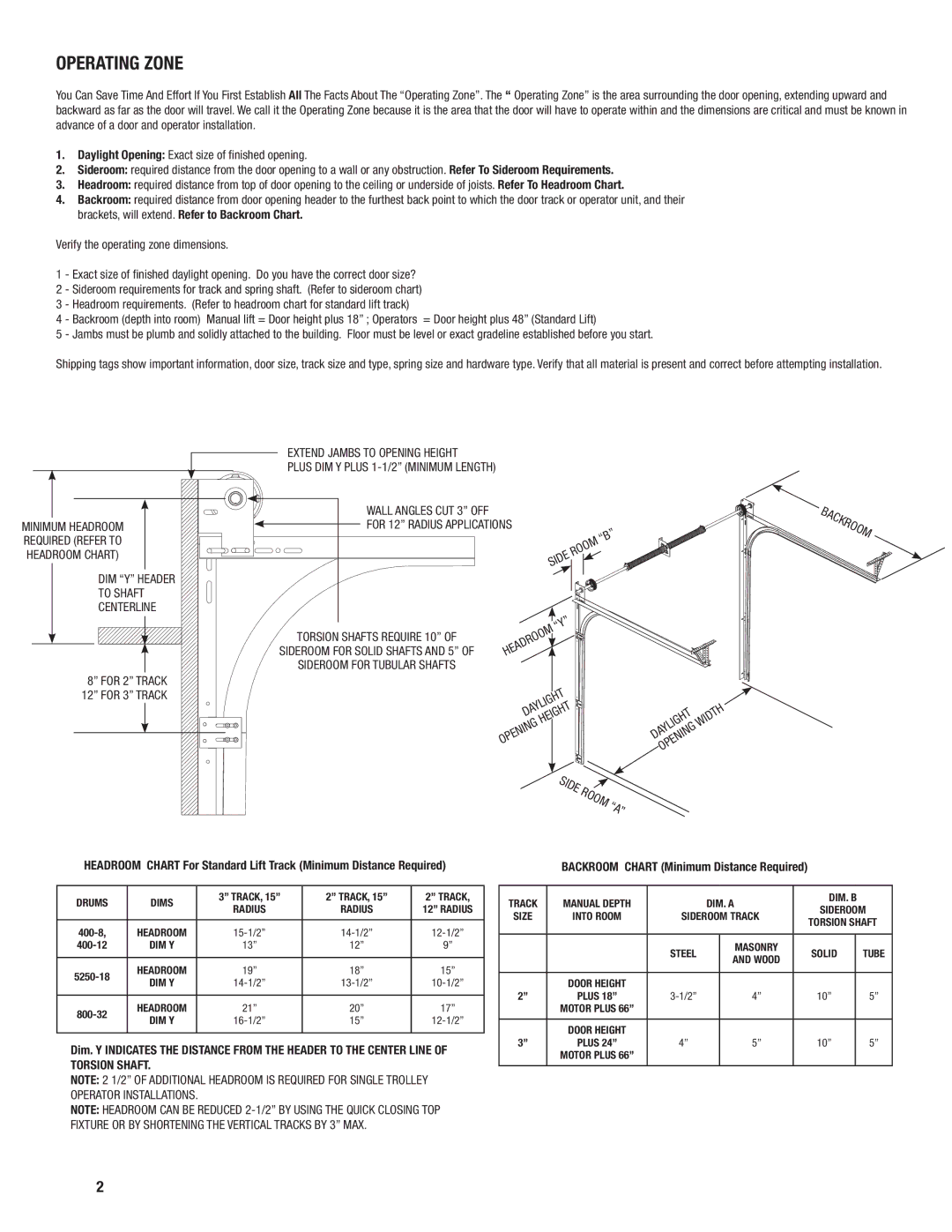451, 452 specifications
Wayne-Dalton 451 and 452 are renowned models that stand out in the realm of residential and commercial garage doors, offering a perfect blend of functionality, durability, and aesthetic appeal. Designed to meet the diverse needs of homeowners and businesses, these models incorporate advanced technologies and features that ensure security and ease of use.The Wayne-Dalton 451 model is particularly distinguished for its exceptional insulation properties. It boasts a 1.5-inch thick door construction, utilizing a polystyrene core that provides superior thermal efficiency. This insulation not only helps in maintaining a stable internal temperature but also enhances energy savings, making it a sought-after choice for regions with extreme weather conditions. The exterior of the door is crafted from high-quality steel that is both rust-resistant and durable, ensuring that it withstands the test of time.
Aesthetically, the 451 model offers a variety of design options, with numerous colors and finishes available. Homeowners can choose between different panel styles and decorative windows, allowing for a high degree of customization to fit any architectural look.
On the other hand, the Wayne-Dalton 452 model elevates the standards further with its unique construction features, providing sound insulation and enhanced durability. The 452 model utilizes a polyurethane core, which not only offers superior insulation but also provides a lightweight design that makes it easy to operate. This model is particularly beneficial for areas that require quieter garage doors, ensuring that daily operations are smooth and unobtrusive.
Both models come equipped with Wayne-Dalton’s signature TorqueMaster® system, which utilizes a unique spring design that is fully enclosed within the door. This innovative feature minimizes the risk of injury from exposed springs and enhances the overall safety of the doors. Additionally, the doors can be paired with various opening systems, including automatic openers, ensuring convenience for users.
In summary, Wayne-Dalton 451 and 452 models are exceptional choices in the garage door market, combining insulation efficiency, safety, and aesthetic flexibility. With advanced technologies and customizable options, these doors are designed to cater to the demanding needs of both residential and commercial environments, making them a reliable investment for years to come.

